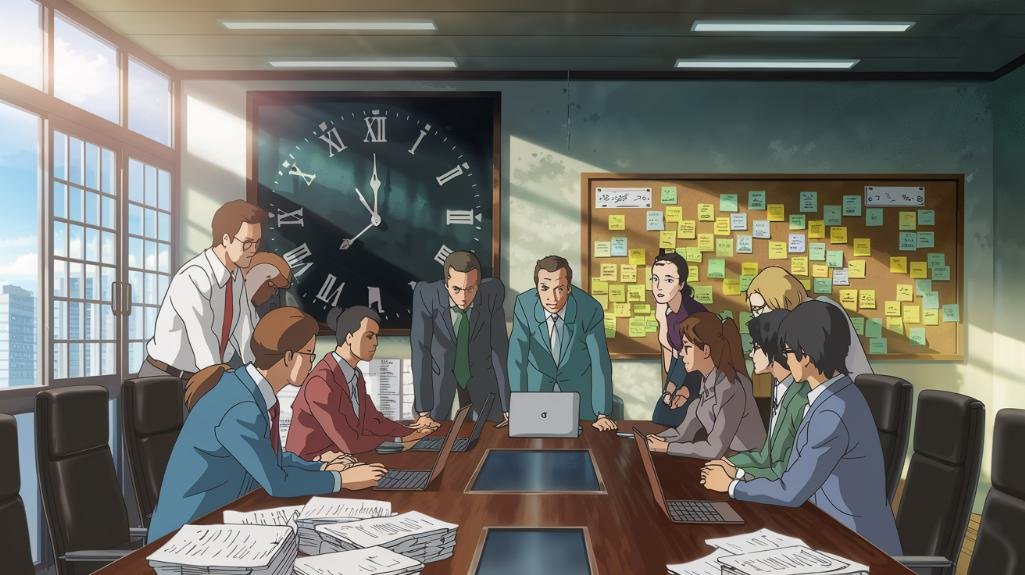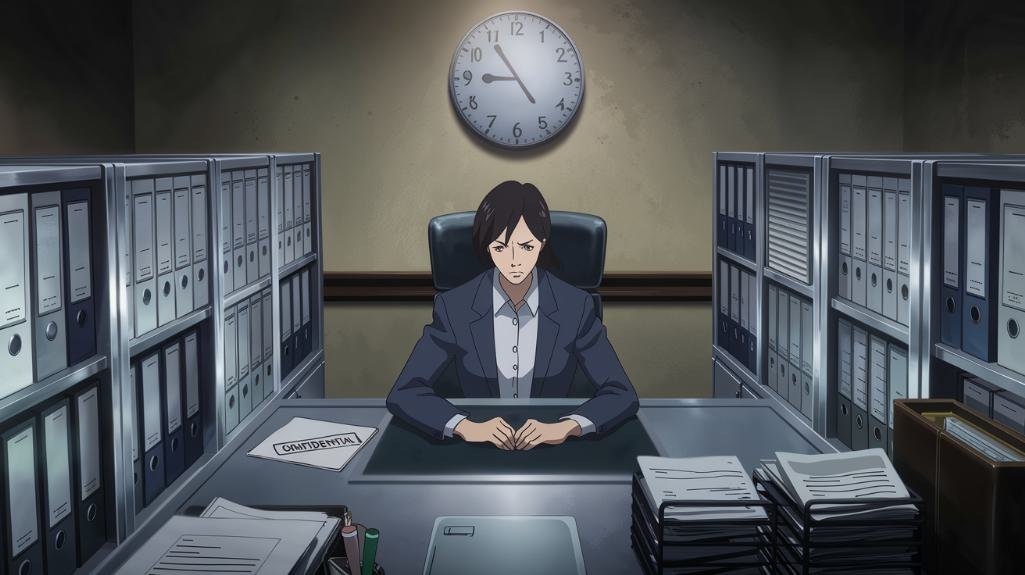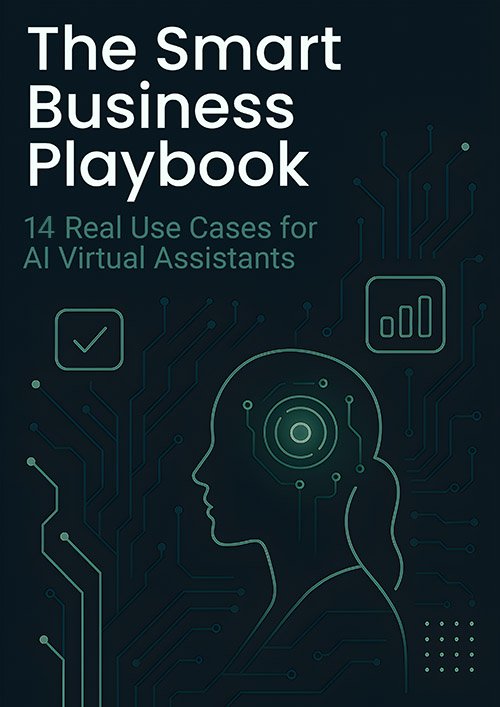HR generally takes anywhere from a few days to several weeks to investigate a complaint, with complexity and severity playing significant roles in determining the timeline. For straightforward cases, they might conclude in under a week, but sensitive issues like harassment often require more time. Compliance with internal policies and external regulations, such as those from the EEOC, guides this process. Although ideal practice is to initiate investigations within two business days of a complaint, factors such as cooperation levels and organizational culture can cause variation. Explore the specifics to understand the nuances and best practices involved.
Key Takeaways
- HR investigation duration typically ranges from three days to a week, depending on complaint complexity and urgency.
- State regulations may dictate specific timelines, such as Ontario's 90 days, impacting HR's investigation timeframe.
- HR generally has 30-60 days to investigate complaints, with severity influencing the timeline.
- Effective planning and cooperation can expedite the investigation process, reducing potential delays.
- Supportive organizational culture and policies contribute to faster investigation resolutions.
Factors Affecting Duration

When investigating a complaint, several factors can affect how long the process will take. Case complexity is a primary factor; the number of parties involved and the sensitivity of the issues, such as harassment or discrimination, can greatly extend the timeline. Effective investigation planning is essential; deciding who to interview and what evidence to gather guarantees efficiency but may require adjustments as new information emerges. Respondent cooperation is necessary; hesitancy or distrust can delay proceedings. Guaranteeing transparency and fairness builds trust and encourages disclosure. Additionally, legal ramifications possible if investigations are rushed, making it crucial to balance thoroughness with promptness. Organizational culture influences the duration; supportive policies, adequate resources, and clear communication channels can expedite the process. Balancing thoroughness with promptness while complying with legal standards is critical for a fair investigation.
Standard Investigation Timeline
Although every investigation is unique, understanding a standard timeline can help set realistic expectations. Typically, investigations last from three days to a week. However, the investigation duration can vary based on complaint complexity and urgency. Impartiality is crucial during the investigation process, ensuring that all parties involved are treated with dignity and respect. Starting promptly is essential to avoid further complications. While no fixed deadline exists, the process should balance speed with thoroughness.
Here's a general breakdown:
- Initial Review: Confirm complaint details with the complainant.
- Necessity Determination: Decide if the investigation is required.
- Notification: Inform the respondent about the investigation.
- Data Collection: Gather evidence and testimonies.
- Conclusion: Analyze findings and make determinations.
Throughout, maintain confidentiality and objectivity to protect the investigation's integrity and achieve fair outcomes.
Legal Requirements for HR

Understanding the standard timeline sets a foundation for recognizing the legal requirements that guide HR investigations.
Ensuring investigation fairness is vital, as employees have specific rights during this process. You're entitled to confidentiality, meaning details stay private to protect integrity. You're also informed about the investigation's nature, allowing for transparency. Employees have the right to access complaints made against them, ensuring they are fully aware of the accusations.
Having representation is often a right, ensuring you're supported. You can present your side and any evidence, contributing to a balanced investigation.
Additionally, non-retaliation is critical—you're protected from any adverse actions resulting from your involvement.
HR is obligated to conduct a fair, impartial investigation, handle evidence objectively, and treat all parties respectfully.
These legal requirements help maintain a just and equitable workplace environment for everyone involved.
Steps in the Investigation
When addressing a complaint, begin with prompt initial response actions to assess the situation's urgency and notify the complainant of the intended investigation steps. During the evidence collection process, focus on gathering extensive and relevant information, including witness statements and supporting documents. The investigator plays a crucial role in this phase, as they are responsible for conducting interviews and reviewing evidence to ensure all necessary details are captured. Ensuring thoroughness and impartiality at this stage is essential for building a solid foundation for the investigation.
Initial Response Actions
Upon receiving a complaint, it's vital to act swiftly to address the issue and prevent escalation. Immediate actions are necessary to guarantee employee protection and maintain a safe workplace.
First, act without delay by considering measures like separating the involved parties or adjusting work schedules. Protect both the accuser and the complainant to prevent further conflict. Investigations can be initiated for various issues, including harassment, discrimination, and policy breaches, and ensuring compliance with employment laws is critical to this process.
It's important to make sure these actions don't imply prejudgment of the situation. Always consider legal implications, especially in cases of harassment or discrimination, to avoid potential lawsuits.
Implement zero-tolerance policies for severe incidents, such as workplace violence, that may justify immediate removal.
- Separate involved employees
- Adjust work schedules
- Avoid prejudgment
- Consider legal implications
- Implement zero-tolerance policies
Evidence Collection Process
After taking immediate actions to address the complaint, focus on collecting evidence to build a solid foundation for the investigation.
Identify and gather various evidence types such as direct, anecdotal, demonstrative, documentary, and physical evidence. Direct evidence includes firsthand accounts, while demonstrative evidence covers tangible items like photos. Ensure legal and ethical collection of all evidence to maintain the investigation's integrity.
Guarantee evidence preservation by securing and organizing evidence to prevent tampering. Use technology tools for data collection, guaranteeing compliance with privacy laws.
Maintain a chain of custody for physical evidence to protect its integrity. Analyze and evaluate each evidence type's credibility, and document every collection step.
Collaborate with legal counsel when necessary, and guarantee the process remains ethical and legally compliant. A systematic approach guarantees thoroughness and reliability.
Best Practices for HR

To guarantee a timely resolution of complaints, you should initiate investigations promptly, setting clear objectives from the outset. This approach helps maintain focus and guides the efficient collection of evidence, essential for a fair and thorough process. Organizations with strong complaint management systems report 25% fewer legal disputes, highlighting the importance of effective resolution practices.
Prompt Investigation Initiation
How swiftly should HR commence an investigation once a complaint is lodged? Ideally, investigations should start within two business days to demonstrate investigation readiness and prioritize the complaint. Prompt initiation helps avoid evidence loss and guarantees that details remain clear. You should immediately develop an investigation plan, outlining its scope and purpose.
Key steps include:
- Identifying who'll lead the investigation.
- Determining what evidence needs collection.
- Planning interviews with relevant parties.
- Providing interim protection, like separating involved parties.
- Guaranteeing a detailed plan to prevent premature conclusions.
Acting quickly minimizes potential harm and shows your organization's commitment to resolving issues. Conducting investigations promptly is essential for maintaining a positive environment free from misconduct.
Clear Investigation Objectives
Once an investigation is promptly initiated, it's vital to establish clear objectives to guide the process effectively. Start by defining the investigation scope, guaranteeing investigation clarity. Clearly outline what needs examining and identify specific allegations to maintain focus. Establishing realistic boundaries is significant for managing the scope efficiently.
Next, set investigation goals that align with resolving workplace issues fairly. Gather factual information, document findings, and guarantee compliance with legal standards. Objective alignment with organizational policies is necessary to maintain consistency and mitigate risks. Regularly evaluate the effectiveness of implemented actions, ensuring that any issues are resolved and that the investigation adheres to best practices.
Guarantee procedural fairness by demonstrating impartiality and providing clear information to all parties. Treat everyone respectfully and maintain confidentiality as needed.
Efficient Evidence Collection
When handling an HR investigation, efficient evidence collection is essential to guaranteeing a fair and complete process. You need to focus on evidence preservation and conduct extensive witness interviews.
Begin by planning meticulously and organizing your approach:
- Identify relevant data sources: Look into personnel files, emails, and digital communications.
- Create a preliminary list of interviewees: Determine who to talk to and schedule interviews promptly.
- Gather physical and digital evidence: Confirm evidence is collected quickly and securely. Evidence types such as documentary evidence include emails, memos, and other records that provide crucial timelines for events.
- Document chain of custody: Track evidence handling to maintain compliance.
- Conduct thorough interviews: Prepare questions in advance, possibly with legal counsel, and assess credibility.
Regulatory Frameworks
Regulatory frameworks play an essential role in shaping how HR investigations should be conducted. You face regulatory challenges when ensuring compliance standards are met. The EEOC doesn't specify timelines, but immediate action is vital. State and local regulations, such as those in Ontario, may require completion within 90 days unless circumstances prevent it. Company policies must define clear procedures and timelines to manage legal risks effectively. HR typically has 30-60 days to investigate complaints, with timelines varying based on company policy and the severity of the complaint. Consulting with legal teams helps mitigate these risks.
Importance of Confidentiality

Understanding the regulatory frameworks that guide HR investigations highlights the significance of confidentiality in these processes. Confidentiality maintains investigation integrity and guarantees fairness. Its impact is vital in protecting all involved parties and upholding the credibility of the investigation. Immediate action is critical upon receiving a misconduct complaint, which underscores the need for swift and confidential handling, especially in harassment cases.
Consider these key aspects:
- Strict Confidentiality: Keeps all acquired information secure, preventing data breaches.
- Limited Disclosure: Shares details only with essential personnel, reducing unauthorized access.
- Witness Confidentiality: Requires witness testimonies to remain confidential until the investigation's conclusion.
- Investigator Confidentiality: Encourages cooperation by emphasizing the importance of discretion.
- Protection of Parties: Shields complainants, respondents, and witnesses from retaliation or harm.
Documentation and Record-Keeping
Effective documentation and record-keeping form the backbone of a robust HR investigation process. Start by documenting the initial complaint, noting if it was verbal or written. Maintain a timeline and document each interview with involved parties, capturing questions and statements. It is crucial for investigators to build good rapport with all parties involved to foster a comfortable environment and gather truthful information. A final report should summarize findings without legal conclusions, detailing actions taken by the company.
For record retention, keep investigation files separate from personnel files, storing only disciplinary actions in the latter. Pause any document destruction during the investigation, and apply a litigation hold if legal issues arise.
Ascertain investigation files are organized and accessible. Submit reports to relevant parties and use a case management solution to track outcomes. These documentation processes ascertain accuracy and compliance throughout the investigation.
Conclusion
Steering an HR investigation is like guiding a ship through turbulent waters. You need to guarantee that each step—from understanding factors affecting duration to adhering to legal requirements—is carefully executed. Stick to a standard timeline, but be flexible, keeping confidentiality as your guiding star. Document everything meticulously, as solid records are your anchor. By following best practices, you'll chart a course toward a fair resolution, guaranteeing a safe harbor for all involved.


